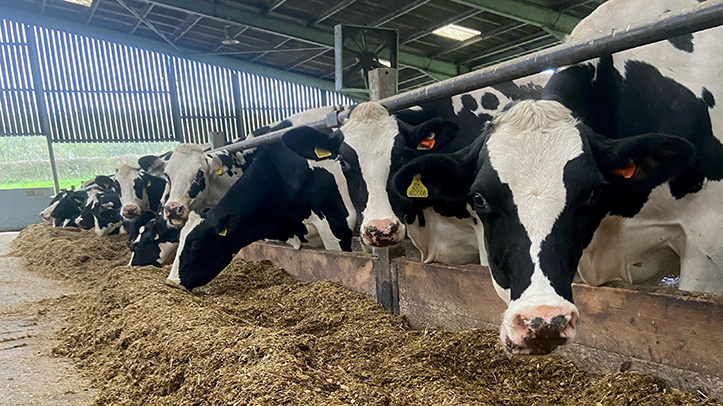A new survey from KW Feeds reveals dairy farmers are concerned about balancing environmental goals with profitability, but almost all of those questioned overwhelmingly recognise sustainability is important to their business.
The survey did, however, highlight concerns over a lack of clarity when quantifying environmental credentials.
In the survey, 98% of the dairy producers questioned agreed that sustainability was important, with 84% already auditing their farm, or planning to do so, although the majority (79%) were doing so in response to retailer or processor pressure.
Responses to the survey revealed some concern to the parameters of different measurements, with experiences of several audits by all the major supermarkets, returning a variety of different results.
Given this experience, one respondent questioned the reliability of the auditing process, concerned it was ‘making a mockery’ of what they feel is ‘an already dubious sustainability agenda, making farming the scapegoat’.
Despite this, Charlotte Ward, ruminant technical manager at KW Feeds, said the survey shows a positive approach to more sustainable farming activities, including the associated operational costs, as long as milk prices reflect the changes, and consumers are prepared to pay for it.
Ms Ward said: “The majority of farmers we spoke to are optimistic about the benefits of operating in a more sustainable way, even if the costs may be higher now. Many felt that in reality, these changes will be self-funding due to improving efficiencies. Essentially there is a short-term cost for a longer-term gain, for the benefit of us all.”
Sustainability benefits clearly need to be linked to performance and profitability, and this is where KW Feeds’ focus and innovation into feed efficiency and predominantly home-grown or British sourced low-emission feeds, plays a crucial role.
Indeed, 96% of those surveyed felt that using UK feed options were either important or semi-important, not just down to cost, but also from a sustainability perspective (69%).
“Accurate rationing formulation, for example only feeding the required amount of protein throughout the housing and grazing periods, was one key area highlighted, and this relies on reliable feed and nutritional advice, supply and support,” said Ms Ward.
The survey also looked at manure management, a subject increasingly on the agenda. Of those questioned 57% had considered changing manure management methods through a variety of means including the use of dribble bars, using additives to cut emissions or covering slurry stores.
However, none of the respondents mentioned livestock management measures, and only 13% had looked at using products to reduce methane emissions in the herd.
“Our survey shows that farmers are wanting to be more sustainable,” said Ms Ward. “There is increased recognition that this is important to the consumer, and if UK producers expect the public to eat and buy locally, they should be doing likewise with their own sourcing.
“While there is clearly a nervousness around hitting the balance between sustainability and profitability, and the lack of a standard across the industry, dairy farmers remain positive they are making a difference for the long-term.”


